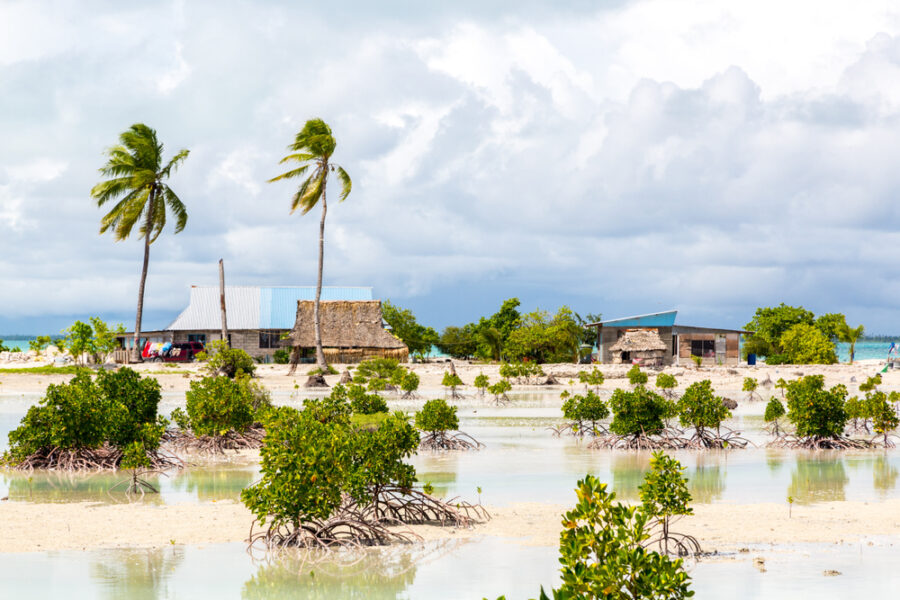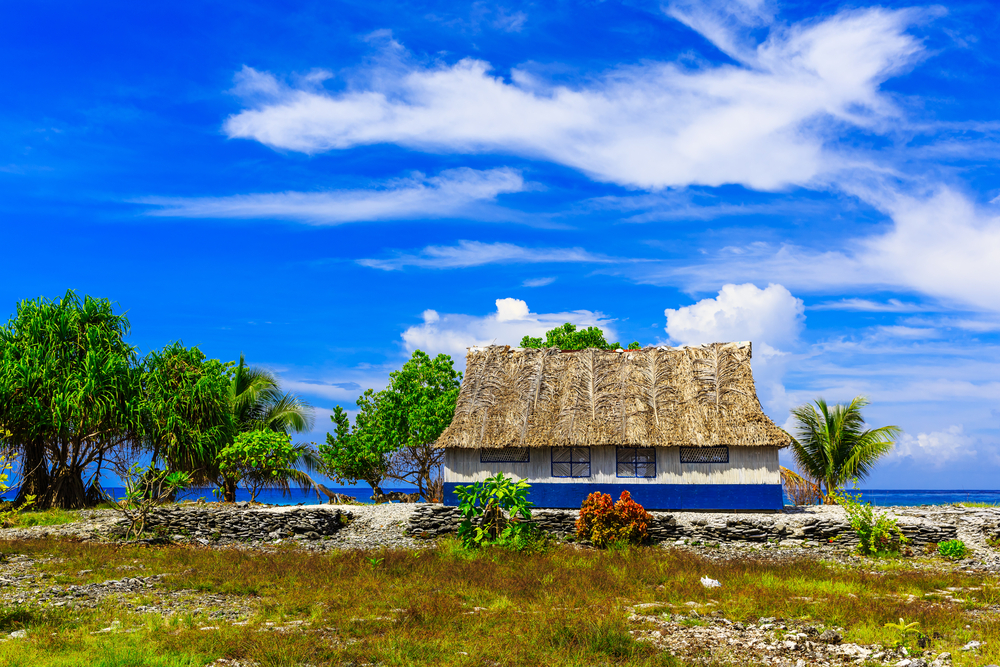In 2021, CARE began work in Kiribati. With efforts in primarily carried out through collaboration with national partners — with the common objective being to overcome widespread poverty in the country.
CARE International’s efforts in Kiribati revolve around addressing the country’s vulnerabilities to natural disasters, such as earthquakes, tsunamis, and droughts. The primary focus of our approach is to enhance resilience in the face of the climate emergency.
Fast Facts
Population: 131,232 (2022)
Life expectancy: 67 (66 male, 69 female) (2021)
Infant mortality: 38 deaths/1,000 births (2021)
Under-5 mortality: 48 deaths/1,000 live births (2021)
Maternal mortality*: 76 deaths/100,00 live births (2020 est.)
Access to improved drinking water*: 97.2% (urban), 63.1% (rural) (2020 est)
Access to improved sanitation*: 75.4% (urban), 45.4% (rural)
Percentage of seats held by women in national parliament: 7% (2022)
World Source: World Bank, *FBI World Factbook
Climate change in Kiribati
Kiribati, one of the world’s most vulnerable nations to climate change, faces significant challenges due to rising sea levels, extreme weather events, and shifting climate patterns. These impacts have already seen adverse effects on livelihoods such as agriculture, fisheries, disease outbreak — with limitations to freshwater becoming more scarce.
In response to these concerns, Kiribati devised the Kiribati Joint Implementation Plan (KJIP). This comprehensive strategy integrates climate change and disaster risk management, focusing on various levels of vulnerability, including health. Building on the foundation laid by the previous adaptation program, the KJIP serves as a guide to address climate-related challenges in Kiribati.
Through the implementation of the KJIP, Kiribati seeks to reinforce its resilience to the adverse effects of climate change — while safeguarding its communities and crucial resources.

Inequalities in Kiribati
Women in Kiribati face various challenges, including limited access to clean drinking water, and a range of challenges that are unique to women and not something that men and boys face, for example limited access to modern contraceptive methods, basic sanitation facilities, education, and owning bank accounts.
Additionally, women and girls are at increased risk of experiencing violence, which may reflect the persistence of certain traditional roles and unequal power dynamics.
Although Kiribati has made significant progress in improving health outcomes and expanding access to education, disparities still exist in labour force participation, living standards, and legal protections between women and men.

Donate now
Support our ongoing work to create a more equal world.
Your donation can help end extreme poverty and give people the means to build a better future for themselves in countries like Kiribati.
For those living in extreme poverty, your support brings education and training, healthcare and clean water, nutritious food, and new ways to earn an income. And in times of crisis, you help us deliver emergency relief. Please donate today.

